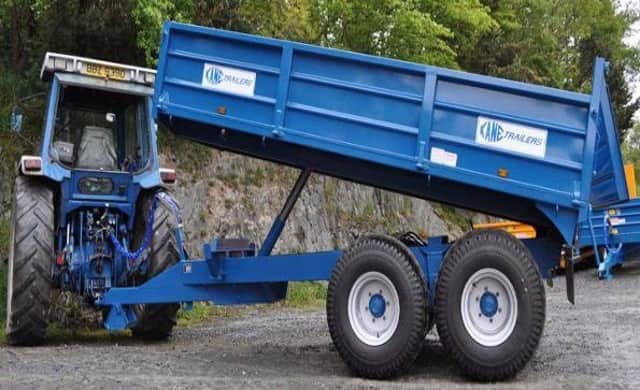Is your trailer roadworthy?


All equipment attached to a trailer such as brakes, lights, number plates and tyres must be present and in good working order. If found to be using a vehicle which is defective in any way this can result in enforcement action being taken with Penalty Points issued and hefty fines for the driver and owner of the vehicle with prohibition notices also being issued if the vehicle is found to be unfit for service.
It is worth noting that all trailers, which travel on any road, should have functioning and effective brakes with trailers towing at a speed of 25mph achieving a braking efficiency of at least 25%. Those trailers towing at speeds greater than 25mph should have a braking efficiency of at least 45%. Anyone who is unsure of the braking efficiencies of their trailer is encouraged to visit any trailer dealer which is a member of the British Agricultural and Garden Machinery Association (BAGMA) to have the braking efficiencies of his or her trailer assessed. At present, there are eight BAGMA approved machinery dealers in Northern Ireland and details of these dealers can be found online at www.bagma.com.
Advertisement
Advertisement
Handbrakes should also be present on any trailer and the handbrake should be capable of locking two wheels to hold the trailer in a stationary position. Rear marker lights, turning indicator lights, brake lights and a number plate light must be fitted to the trailer and clearly visible at all times as should rear reflective marker boards, as they are essential in helping to indicate the outermost part of the trailer.
It is also worth noting that lights must not be more than 2m from the most rear part of the trailer and the number plate, which can be the same as any other vehicle, registered to the same farm such as a tractor, self-propelled forager or combine harvester must be genuine as a handmade number plate is not acceptable.
Employers do have duties under the Health and Safety at Work Act 1974 to ensure that reasonable steps are taken to ensure the Health and Safety of their employees and those affected by their business activities.
Under the Provision and Use of Work Equipment Regulations (PUWER) employers have additional duties to ensure that all machinery and equipment is fit for the purpose intended, well maintained and those personnel using the machinery and/or equipment have been adequately trained in its use. It is not uncommon for employers to instruct employees to carry out regular checks on machinery and equipment such as trailers.
Advertisement
Advertisement
By carrying out regular maintenance checks, this should allow any defects to be identified and repaired immediately and this in turn will help to reduce the number of fatal accidents involving farm machinery. Any vehicle, which is deemed, fit for road use is also deemed safe to use on the farm.
Anyone needing further information should contact the Driver and Vehicle Agency for Northern Ireland (DVANI) on 0300 200 7861.